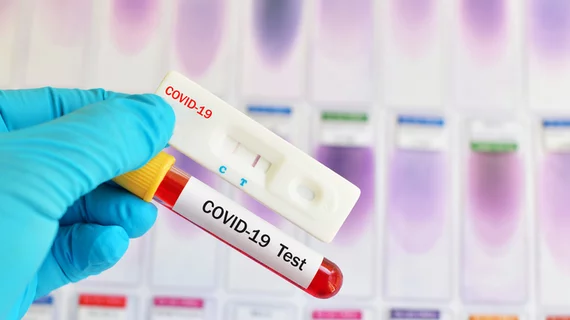Experimental AI models deliver 90%-plus accuracy in COVID screening
Cross-Atlantic researchers have developed two AI models that are fast and accurate at screening for COVID-19, offering hospitals potential options when lab testing is backed up or unavailable.
The team, which includes members from Harvard and Oxford, has posted its results on the preprint server medRxiv prior to obtaining peer review.
If they come through that process, the models could let ER or admissions staff check for COVID using health-status data routinely collected upon patients’ arrival at hospital.
After using such data from more than 115,000 ER visits and more than 72,000 admissions to train the models, Andrew Soltan of Oxford and colleagues found their emergency model achieved 77.4% sensitivity and 95.7% specificity for COVID-19.
Their admissions model performed similarly—77.4% sensitivity and 94.8% specificity.
Both models brought back high negative predictive values (>99%) across a range of prevalences (<5%), “facilitating rapid exclusion during triage to guide infection control,” the authors report.
What’s more, prospective validation showed both models had accuracies north of 90% at a large U.K. teaching hospital over a two-week period.
“Our work demonstrates that an AI-driven screening test can effectively triage patients presenting to hospital for COVID-19 while confirmatory laboratory PCR (polymerase chain reaction) testing is awaited,” Soltan et al. conclude. “Our approach is rapidly scalable, fitting within the existing laboratory testing infrastructure and standard of care, and additionally serves as proof-of-concept for a rapidly deployable software tool in future pandemics.”
They call for prospective clinical trials to assess the models’ real-world performance and generalizability to other care settings.
Click here for the study abstract, and select “Preview PDF” to read the full preprint report.

